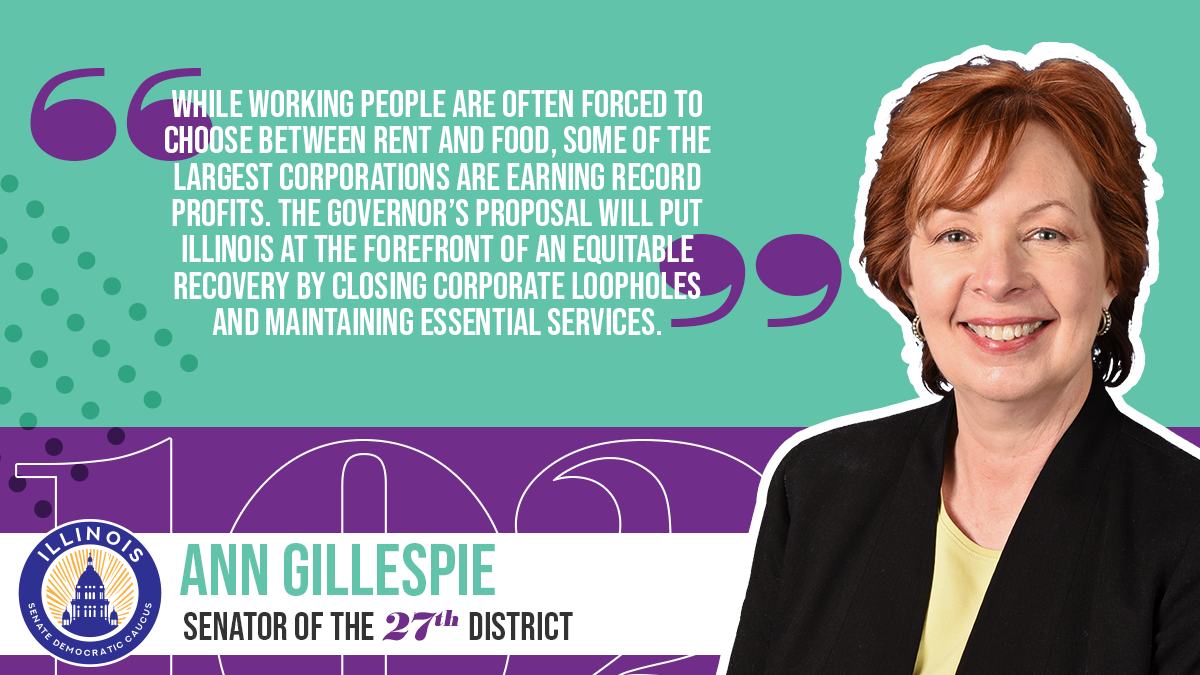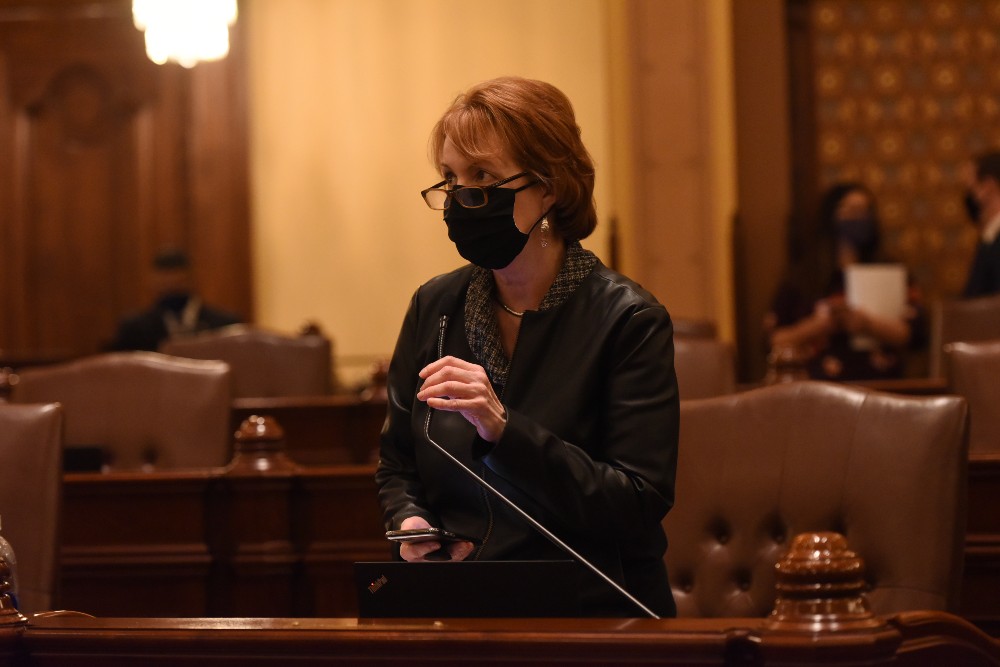Gillespie: Local communities to receive over $3.3 million infrastructure investment
- Details
- Category: News
 ARLINGTON HEIGHTS – State Senator Ann Gillespie (D-Arlington Heights) announced today that local governments will receive over $3.3 million in Rebuild Illinois grants for infrastructure projects.
ARLINGTON HEIGHTS – State Senator Ann Gillespie (D-Arlington Heights) announced today that local governments will receive over $3.3 million in Rebuild Illinois grants for infrastructure projects.
“This investment will give our local governments much-needed help, as we work to fix our crumbling roads,” Gillespie said. “Our municipalities need all the assistance the state can provide as we continue to recover from the pandemic, and I am eager to learn which projects they choose.”
Gillespie moves to create social work scholarships
- Details
- Category: News
 ARLINGTON HEIGHTS – To help end the school social worker shortage, State Senator Ann Gillespie (D-Arlington Heights) introduced legislation that would create scholarships for students working toward an Illinois Professional Educator License with an endorsement in School Social Work.
ARLINGTON HEIGHTS – To help end the school social worker shortage, State Senator Ann Gillespie (D-Arlington Heights) introduced legislation that would create scholarships for students working toward an Illinois Professional Educator License with an endorsement in School Social Work.
“Students are facing unprecedented social and emotional challenges, and schools across the state are in the midst of a shortage of social workers,” Gillespie said. “We must address the growing need for professional, culturally competent social workers in our schools.”
Gillespie: State should close corporate loopholes for equitable recovery
- Details
- Category: News

SPRINGFIELD – State Senator Ann Gillespie (D-Arlington Heights) released the following statement in response to Gov. Pritzker’s State of the State address:
“While working people are often forced to choose between rent and food, some of the largest corporations are earning record profits. The governor’s proposal will put Illinois at the forefront of an equitable recovery by closing corporate loopholes and maintaining essential services. Making these changes would allow us to expand on our relief efforts and level the playing field for our small business community.
“This budget proposal also makes a commitment to our higher education students, as funding will remain steady, and needs-based programs like MAP grants will be expanded.”
Gillespie votes for health care equity
- Details
- Category: News
 ARLINGTON HEIGHTS – To address disparities in health outcomes further highlighted by the COVID-19 pandemic, State Senator Ann Gillespie (D-Arlington Heights) passed legislation out of the Illinois Senate that would foster greater coordination and bolster services offered by hospitals in underserved communities.
ARLINGTON HEIGHTS – To address disparities in health outcomes further highlighted by the COVID-19 pandemic, State Senator Ann Gillespie (D-Arlington Heights) passed legislation out of the Illinois Senate that would foster greater coordination and bolster services offered by hospitals in underserved communities.
“The only way to get us through this pandemic is to improve health outcomes in the communities most affected by the virus,” Gillespie said. “Transforming our health system to increase access and make quality care affordable will alleviate the generations-long disparities we see today.”
Page 31 of 52



